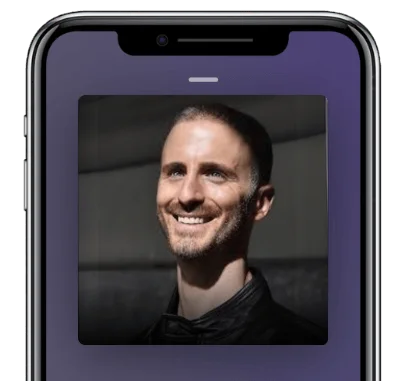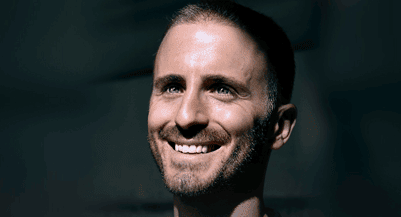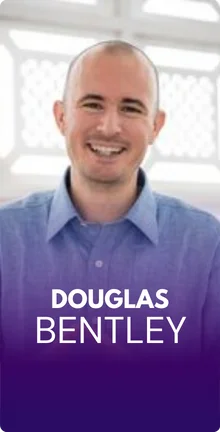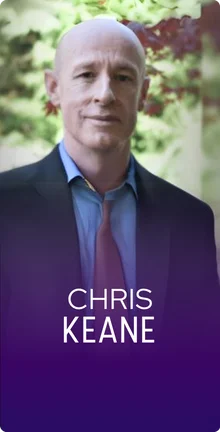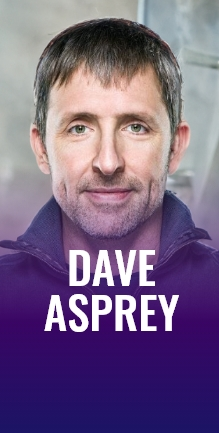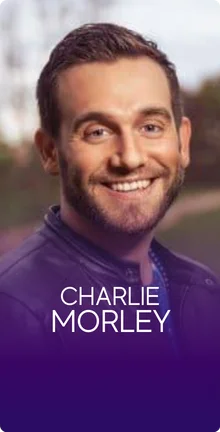Stephan, good to talk to you again.
I enjoyed meeting you at 40 Years of Zen. You met my wife there as well, Orion. Share a little bit about your experience at 40 Years of Zen and I’ll share some of mine.
For your audience who may or may not be familiar with 40 Years of Zen, it’s a neurofeedback facility. It’s a brain training facility that is an offshoot of Dave Asprey’s Bulletproof work. I was highly intrigued by it when I saw a presentation from Chris Keane who runs the 40 Years of Zen lab.
Chris Keane was on the show, as was Dave Asprey. On both of those episodes, we went in-depth into 40 Years of Zen and how neurofeedback can help your brain.
I built my entire life around personal, physical and spiritual development but one thing that I’ve never had access to is how I can develop my brain. My brain is a muscle like anything else. Now, the technology is available. The thing that was fascinating for me about 40 Years of Zen was this two-part process of number one, getting my brain mapped to figure out what was going on inside my head as a baseline, and then part two, which was the reason why we were there for those five days, was for us to go through the brain training. The brain map was fascinating because they map your brain but don’t tell you the results of it until a few days later.
You’re constantly on edge. What did you learn about me? You’ve got this insight into my mind and I don’t know what’s going on in there. What was fascinating was that I stumbled across something while I was there that I wasn’t supposed to see. It was one of the neuroscientist’s personal notebooks that he’d left open on the desk with notes about our brain maps. The notebook page that was opened to was mine. I was able to see that he said I have Alpha waves firing like crazy in my occipital region, but I have hyperactive prefrontal lobe in the Beta brainwave. The Beta brainwave is like the high cognition, lots of complex thinking. The commentary that he’d written down was, “Does this man have an inability to experience joy? Is he blocking emotions?” The other thing that he had written was about another part of my brain where he said, “What’s going on here? Does this guy have a short fuse and a temper?”
For anyone who has known me over the last three decades, no one would have said that I have a short fuse or a temper. However, that’s something that I worked on because when I was a child I had extraordinary emotional outbursts. My life was either deep amounts of bliss or things were nuclear. I couldn’t control my range of emotions and it was just like in between. That didn’t work out well for me. I would get punished if I had an outburst. I would have extreme stomach pains at night and inability to sleep when emotions were bothering me. I didn’t have any mechanisms to deal with that, so I overdeveloped this part of my brain, that prefrontal lobe that helped me to suppress my emotions. What the neuroscientists told me were, “Congratulations. You are the very few of the top three or five percenters who have a developed region of your brain which is responsible for critical decision making, critical thinking, discipline, and willpower which has served you well, but you’re driving a Lamborghini in city streets and in driveways, and you need to become more efficient with your brain because it’s wiping you out. It’s blocking your ability to experience Alpha and emotion.” That was the thing that we ended up working on quite a bit while I was there.
I’ve heard that our brains are 2% of our total body weight. That little organ, that little mass or weight of our total takes up 25% of our calories. We burn so hot up there in our skull and we don’t put enough thought or effort into exercising our brains or improving our cognition. We hit the gym and build muscle, but we don’t do stuff like 40 Years of Zen or even meditate.
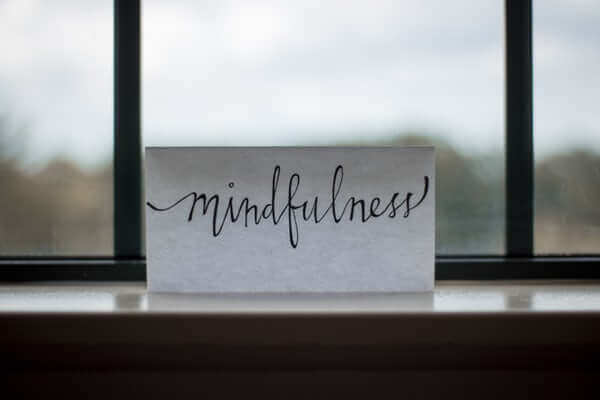
I was this person who optimizes my health. What goes into my body, I optimize my mindfulness. I’ve had a practice for five years of all different forms of meditation and mindfulness. I regularly sleep seven to eight hours per night and I still found myself fatigued at the end of the day, fatigued in the middle of the day. I couldn’t quite understand why because if this 2% of my body weight, this organ is consuming 25% of the calorie burn in my body and I am using a higher voltage frequency of a Beta brainwave that’s inefficient, then that’s the reason. We could train that out so that it could be more efficient. I have experienced over the last months since we did 40 Years of Zen together an uptick in my energy and the emotions I’ve experienced, which has sometimes been great. Sometimes it’s been challenging too.
You have a greater effective range of emotions now.
Sometimes that’s not always convenient. Sometimes it’s confusing. It almost feels like I’m hormonal sometimes. What I mean by that is I will have one of the greatest days. Let’s say a Sunday that’s productive. I’ll do writing towards my next book. That’s 2,000 words down on a piece of paper. I will spend time with people whom I care about deeply. I will have a wonderful dinner and a great night’s sleep. Then, I’ll wake up the next day anxious and with a self-defeating narrative in my mind. I have no idea what triggered it, what caused it. There’s no external cause that I can point to. What I’ve realized in having to deal with that is I’ve asked for this. I’ve asked to be reconnected with my emotional state because as a child, I was a very feeling individual. There was a lot of power that came from that, but I didn’t realize that I didn’t have the tools to channel that. Now I do. I can understand that sometimes this anxiousness is not going to be permanent. I don’t necessarily have an outside cause to point to that says this is what it’s about, to be able to sit with it and understand that sometimes my pain is my medicine. I asked to feel again because when I can feel the low stuff, I can now feel the high stuff too.
It’s interesting that you mentioned anxiousness specifically because in the three-year history of my show, I have not had an episode up until recently on anxiety. I had Andrea Petersen, the bestselling author of On Edge on this podcast to talk about anxiety disorders, panic attacks, and all that. Thank you for being vulnerable, open, and sharing this aspect of your experience.
It’s my pleasure. That’s an interesting point you just brought up because I do executive coaching and keynote speaking primarily inside the financial services industry where I spent fifteen years. After every presentation that I do, it’s usually a 40- to 55-year-old man who is one of the leaders of the business, who responsible for hundreds or sometimes thousands of employees who will come up to me. He’s got a family and aging parents. He’s got an unreasonable bout of responsibilities. He will come up to me and I will tell you, 95% of these men will use the word anxiety. I ran a workshop for a hedge fund. Ten Alpha men sitting around a room who don’t talk about emotions, but set this container where people started to open up.
The 40-year-old top sales guy in the room said, “I have anxiety and it shows up when I’m driving. It pops up out of nowhere. I have to pull over to the side of the road.” A 55-year-old guy who goes next, “Anxiety is popping up in my life too.” A 25-year-old sales support person, it’s the same thing. Anxiety is this thing that I see popping up in super high performing specifically men. I’m not saying this is not inside of women as well, but in my experience, the guys who were coming to me were these successful guys who have buried their emotions for decades because they’ve had to in certain respects or because that’s the only acceptable way to deal with emotion as a man, at least societally speaking right now, and it works until it doesn’t. This stuff doesn’t go away, and it comes roaring back in the most unlikely of circumstances and guys don’t know what to do with it.
Sometimes my pain is my medicine. Share on XMany people don’t like their emotional range or the reactivity because maybe it’s socially awkward for them to get angry in a business situation or they repress their emotions. You do enough repression which eventually could kill you. I remember a good friend of mine who has a lot of expertise in neuroscience. She told me that the repression of the emotions that I had been doing for all those years will kill me. It’s very bad for my brain. This was years ago. I’ve made significant headway in increasing my emotional range and being more of an emotional being and not just in my head and a left-brain logical more feeling. That helped my overall health, not just my mental health.
In the arena that you developed your business over the last few decades, in the arena that I spent fifteen years in financial services and many men and women spend decades of their lives, the left brain conservative which suppresses your emotions, is valued, and rewarded highly inside of those spaces. For most of the men that I ended up interacting with, they experience emotion as a liability. A perfect example of this is a client that I started with. He runs a big underwriting organization at one of the nation’s largest healthcare companies. He reports directly to the CEO, so this guy has a huge amount of responsibility. He’s a very heady guy, super intellectual, super smart, and has skyrocketed up the chain of command in a very short period of time at a young age. Precisely what you talked about that repressing emotion to a point where he even said, “I don’t let the highs get you high, and the lows get too low.” That is seen as a superpower, especially in the corporate world and for a period of time, it can be. Then it works until it doesn’t. Especially when leaders have to lead the change and they’re coming from this purely intellectual standpoint, they’re making these rational arguments to their teams.
People don’t follow rational arguments. They follow what they feel. They will always respond to the emotion that they feel the most and most people respond to clinging to safety. If you have this leader sitting on top of the organization who is making a PowerPoint, logical, rational Excel spreadsheet-backed up an argument that is trying to unhinge someone from their deep-rooted need of safety, security, and predictability, you’re not going to get them to move anywhere. That’s what I’m seeing a lot of leaders doing, and even beyond that, from a personal standpoint, most men and women who are finding themselves in this position are truly disconnected from what lights them up. That’s why I encounter super successful people who have everything that they’ve ever wanted, and they can’t experience joy or the fire that they had been seeking for so long has burnt out and they don’t know what to do with it.
It’s like they’ve dimmed their own light. It takes a huge piece out of the human experience. How do we get that juice back? Besides going to 40 Years of Zen and having all these moments of gratitude, forgiveness, and epiphanies when we were in pods doing our augmented reset processes, our ARP. Besides that, which not everybody can afford to spend $15,000 to do a week in Seattle at this 40 Years of Zen facility, what would you recommend for the typical audience?
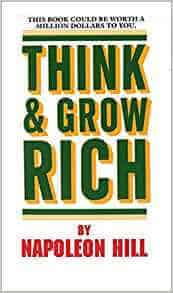
The entry-level is to read one of the maybe top three books I’ve ever read in my life, by a man named Napoleon Hill, Think and Grow Rich fame. He wrote this book called Outwitting the Devil and it introduces this concept of drift. For many people, they know Napoleon Hill as the author of Think and Grow Rich. There have only been fifteen books that have ever sold over 50 million copies of nonreligious texts. Most of those books are like Harry Potter or The Hobbit, so fiction books. The only business book that has ever sold over 50 million copies is Napoleon Hill’s Think and Grow Rich. He did his work during the Great Depression era. He had a mentor by the name of Andrew Carnegie of the Carnegie fame. Andrew Carnegie said, “Napoleon, if you want to understand how the best in the world attracts riches into their life, what their habits are, what their mindsets are, then you need to go out and interview 500 of the world’s best and mine their secrets.”
It’s like what you’re doing, Stephan, but he did this 80 years ago. He went out and interviewed the Henry Fords and the Rockefellers and people like this. He ended up writing Think and Grow Rich, which became the bible for attracting riches into your life. I’m more drawn to the second part of the challenge that Carnegie laid down. He said, “If you really want to understand how to live a life of purpose, you need to go out and interview ten times as many people who are on their deathbed who will admit to not having lived a life of intentionality. They left chips on the table and have a life of regret.” The consummate, overachiever Napoleon Hill went out and interviewed 25,000 of these types of people over a two and a half, three-decade period of time.
He mined their secrets. He ended up writing the bookend to Think and Grow Rich, which was called Outwitting the Devil. In this book, he creates a discourse with the devil. It’s almost like the book’s conversation with God except this is a conversation with the devil. It was deemed so controversial because Napoleon Hill took some shots at educational systems and at religious institutions. His family buried the book for eighty years and it was only released in 2011. I remembered that this book was sitting on my nightstand collecting dust. I had it there for six months and it was only when hurricane Sandy hit New York City where we were without power, without the internet, without cell service. All I had was a flashlight and no other distractions. I finally picked up the book. If anyone’s ever been in an environment where there are no distractions and you read something that sinks into the deepest of levels like you know how that can shift you forever, this was one of the most defining moments in my life.
I remembered reading these words that were the conversation with the devil. The devil says something along the lines of, “I inhabit the minds of people. I do so through the practice of habit and in habit, I establish this ritual of drifting. Once I can get a person to drift, I can lead them straight towards the gates of hell.” What the devil means by drift is that we think we are consciously making choices and decisions in navigating our own lives, when in actuality, we’re just meandering through life in this hypnotic rhythm, dancing as like on these puppet strings of the devil and one day bleeds into the next without much consciousness. It’s only when an outside force thrusts itself upon us that we wake up from our slumber. Those outside forces are usually something crappy like losing a loved one, an unexpected illness, losing your job, things like these. Those can be some of the most transformative moments of your life.
I am willing to bet that every single person has gone through something horrible. While you were going through it, you resisted it, you wanted it to be over, but now you can look back on it and say, “That was what made me who I am today. That gave me the strength of the person that I am today,” and those are transformative moments. The problem is most people exclusively rely upon an outside force to thrust itself upon them before they make a meaningful change in their life. My question to people is to say, “How in command of your life are you when you are constantly beholding and only beholding to outside force to catalyze change in your life? Why can’t you start to build a muscle around breaking free from, first of all, acknowledging when you are in drift and then disrupting yourself and breaking free from that, catalyzing a change from the inside out?”
I still believe that we are gifted with traumatic events and tragedy in order to wake us up from the slumber. It’s not necessary that the Creator sends us these challenges to give us the opportunity to grow. We don’t need those painful opportunities if we choose to grow without the outside forces. Normally, we’re on autopilot that’s kind of the default mode, a robotic consciousness as described in Kabbalah, and yet we don’t have to be that way. We choose to be that way. It’s easy, it’s comfortable, it’s a little effort. Yet, we miss this huge opportunity and then we wait. The feather is that the universe sends us these little reminders that we need to do something or make a change or make a shift. We ignore them and the feathers eventually will turn into bricks and those hurt and we ignore those bricks and eventually, the bricks turn into the Mack Truck.
People don't follow rational arguments. They follow what they feel. Share on XYou don’t even have to wait for the feathers is what I’ve found. I’m hungry to learn, grow, contribute and become more to elevate my consciousness without any trigger, without any outside force. I’m at the very early stages of this. I’ve been doing Kabbalah classes for example for the last three years. I’d only been spiritually awake since 2012 since I had this experience in India where I had gotten touched by a Oneness monk at a Tony Robbins Platinum Partner trip. That was the moment where I woke up and decided I am going to stay awake, but it’s so easy to fall back asleep. That’s the default mode. Let’s talk more about the drift and how do you recognize it? How do you address it?
From what Napoleon Hill’s Outwitting the Devil book talks about is 98% of people wait until the Mack Truck hits them. They’ll ignore the feather. The brick will hit them, and you’ll look to resist. Whatever happened, you’ll step over it. It’s only this outside force that you can’t ignore. It’s coming barreling down upon you. Sometimes the devastation and destruction are too much to overcome. What you and I am saying is we want to be in this perpetual state of awakeness. What I have found is that the forces of drift are so strong that at least in my young journey of this, my first awakening came in 2010, I constantly find myself drifting and having to catalyze these awakenings in myself.
The first step that I found in breaking free from drift is humility in the fact that we don’t have all the answers and recognizing that I am vulnerable to the forces that are stronger than me. I do have this deeply rooted desire to be safe, to be on autopilot, but also the way that our chemistry is made up, neuroscience has shown that around 95% of what we think, feel, and do falls below our conscious detection. We’re designed that way because our bodies need to be efficient. Can you imagine if you had to make a conscious choice using your conscious mind every single time you wanted to go to the supermarket or get into the car? I had to consciously think about putting the key into the ignition, consciously need to think about every speed up and slow down?
Going back to the 25% of our body’s energy that’s taken up from our brain, we’d be exhausted and depleted. It’s almost like our system is designed to move into drift. However, what Napoleon Hill and some of the greatest teachers will say is that, “If we can connect to a sense of purpose and meaning, that is so fulfilling, that is like a North Star that guides our every action, then all of our energies will align around that.” Our conscious and unconscious energies will align around that. If you have something that is so deep and meaningful, like a GPS navigation system, no matter where you fall off, even if you drift a little bit, you still know the end destination, you can course-correct very quickly. For those who don’t have that ultimate mission, who don’t know where you’re going, it’s hard to make meaningful decisions in this moment. All there can seem to be are the trials and tribulations or the bliss of this moment and you can’t even think towards how that contributes to the end state.
I also say this, Stephan, with the couching of not putting too much pressure on yourself if you don’t have that North Star, you don’t have that ultimate purpose and vision because so many of us can say, “I need to know what my life is about. I need to know where I’m going. I need to know how many people I’m impacting. I need to know what my legacy is.” It’s almost like trying to find love from a place of desperation. You’re never going to get it. You’re going to squeeze it too tightly and push the very thing away that you’re looking for. I’ve found it from a high-level standpoint and I haven’t gotten into tactics yet, but the first step is humility in recognizing that we are engineered towards drift. Also it’s seeking that very thing that will give your life purpose and meaning, that North Star that you can align all your energies around that helps to get your underlying system that wants to be unconsciously driven, that wants 95% of your energy to be moving towards that thing that serves a greater purpose.
Apparently, airplanes are course-correcting all the time and they’re off-course at any given moment. The vast majority of the time that they keep course-correcting throughout the flight, you get to your destination on time. If you don’t know where you’re heading though, and you keep needing to course-correct then, you got a real mess going on. That North Star is critical. Even if it’s not the ultimate purpose that you’ve identified yet but you’ve got something that’s greater than yourself, then you’re in the right direction.
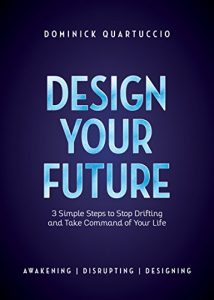
If you want to get specific stuff, chunk it down a little bit and make it a little bit more real, it’s okay. Then, how do I create that awakening? I’ve written a book called Design Your Future. The key problem I define is drift and the three steps are creating awakenings, disrupting yourself and then designing the future that you want to live into. Awakening is the first step in the process. I delineate that from awareness. We have awareness of a lot of things that we don’t take action on. I’m aware that I spend too much time on my cell phone and most people are too, but they don’t do anything to change it. Smokers are aware that they’re not exactly helping their health condition, but they continue to do it because it provides other benefits that override that awareness of maybe they could potentially get sick one day. Awakening is when you are in that space of, “I know that there’s something that I need to do and I’m in action around that.”
I just have that like a few hours ago. I keep uninstalling Facebook from my phone because I don’t want to get hooked on it. I let it stay on my phone and I was fully into drift. I’d spend ten times more time on Facebook in the last month than I had spent in previous months. I knew it and was aware of it but I got into this bad habit and so I deleted the app from my phone again. It’s not coming back and only if I have to do a Facebook live will I temporarily reinstall it. Then I will immediately uninstall it again, even if I’m going to do another Facebook live later that same day.
We could go deep on the technological stuff. It’s a big part of the work that I do inside of large corporations around how technology is specifically engineered to keep you hooked on it. It’s actually to take advantage of this concept of drift. If there’s one piece of technology that is designed to enhance our lives, and I recommend this to everybody is an app called Moment. If you’re an iPhone user or an iPad user, Moment app helps you to track three things that most people have no idea about. It helps you to track how much screen time you spend on your phone per day, not phone calls, not FaceTimes, but how much time you spend on things like Facebook, Instagram, emails and text messages. It will delineate for you how much time you spend on Facebook itself. It tells you how many times you’ve unlocked your phone over the course of the day, which is another metric for you to take a look at.
Some studies show that the average businessperson unlocks their phone 110 times a day. If you do the math on that stuff, if you’re only sleeping six hours a night, you are unlocking your phone five to six times every waking hour of every single day over the course of weeks, months, and years. Can you imagine the compound effect it has on your ability to be present, stay focused, do deep thinking, to remain in a normal level of stress? The last thing it helps you measure is the timestamps. There may be parts of times of the day where you’re more vulnerable to diving into your phone.
When I downloaded the Moment app, I spent 45 minutes right when I popped out of bed in the morning. It was the first thing I did an hour at the end of the day. Most people launch into their phones within the first five minutes of waking up, probably within the first minute for most. I went down this reactive rabbit hole. At the end of the day, I’m so exhausted. I sit on my couch or in my bed and go through endless scroll. I was spending four and a half hours a day of screen time on my phone. The Moment app founder did some data analytics and found that most people underestimate the amount of time they spend on their phone by 50%. I started to implement some practices like I kept my phone out of my bedroom. I don’t use my phone as my alarm clock anymore. That’s the one thing I recommend to everyone, either buy an Amazon Echo and put in your room or buy an old-school alarm clock.
Technology is specifically engineered to keep you hooked on it. Share on XDon’t do that, all the electronics out. I had a great episode with Brian Hoyer. We talked about the dangers to your biology of electromagnetic fields, EMS. You need to get all of that technology out of your bedroom. You should even consider painting your bedroom walls with special EMF blocking paints because you are getting doused with so much radiation and it’s not good for you. It’s disrupting yourselves. No Echo in your bedroom. You certainly don’t want the government listening to your personal bedroom conversations either and that’s for sure going to happen.
I have EMF blocking devices in my apartment, but if you want to buy an old-school alarm clock or however it is that you want to wake up, get your phone out of your room. That’s probably a faster solution for most people than painting their walls with EMF laden paint. I would say that’s the first step to do it so that you’re not launching out of your bed right into your device. You’re not going to sleep checking your device right before you go to bed. When I was able to do that, I cut one hour on that one technique alone, one hour of my cell phone use per day. Over a 90-day period of time using that extra hour I got back, plus a couple other things I’ve put into place, I ended up writing my book in a 90-day period of time because when you have 100 extra hours in your life, it’s magic and the stuff you can do with it is magic.
I have this habit that I’ve honestly drifted out of but it’s part of my morning routine. It is to not check email until I have done my meditation, my morning connection and defined my three absolutes for the day. You don’t get sucked into other people’s priorities because that’s what email is, everybody else’s priorities, everybody else’s agenda. You don’t get sucked into that before you set that true north for your day.
Here is one more very tactical piece of advice for how to look at your first hour and last hour of your day. Most high performers do not have a conscious strategy for their first hour of the day or the last hour of the day. These are the bookends of the day. These are what determine what happens in the fifteen, sixteen hours in the middle of the day, the most important time. The first hour of my day is all about state. What is the state that I need to be in on that given particular day? If I’m doing a keynote speech that day, my state needs to be something very different than if I’m having an office day or if I’m doing prospect meetings. I always come back to what is the state that I need to be in and there’s usually some regular routines like defining your absolutes for the day. In mindfulness practice for me, there’s healthy eating and exercise that fits into it. Then, I’m off to the races from a proactive place versus people who launch into their phone. You’re like a goalie deflecting shots all day. You can be effective that way, but you can’t score from that position.
You have a morning routine, morning ritual that takes up how much of your morning? How many minutes or hours?
I’ve done the accordion thing. I’ve done something as small as fifteen minutes. I’ve gone as extravagant as a couple of hours. I will flex that flexibility on a regular basis. On a day like now, I had about an hour available to me, so I will take it out. It’s usually I’m doing the same things. I will just spend more time journaling. Instead of ten minutes of journaling, I could do twenty. Instead of twenty minutes of meditation, maybe I could do half an hour. I encourage most people to start with a minimum of fifteen minutes of intentionality. Ideally, you get to something like half an hour to an hour and some people I know spend three hours and would not give up a minute of that if you put their lives in danger. It’s all very personal.
One of the things that keep us addicted is this variable reward schedule. You don't know when you're going to hit a jackpot. Share on XAre you following any particular process or a regimen like Hal Elrod has his The Miracle Morning methodology, the SAVERS methodology, Silence, Affirmations, Visualizations, Exercise, Reading and Scripting or journaling? Do you follow that or do you follow something else?
Yes. You had him on as a guest I believe.
I did have him on. It was a great episode. I’ve had Raul Villacis on to talk about morning rituals as well. Those are two great episodes. Who do you use as your model for this?
I’ve read The Miracle Morning. The book was gifted to me by my friend, Theresa. I loved the concept of SAVERS. I’ve done all six of those things. I’ve plugged, played, and did two or three of those things. For me, the most important is a combination of silence and visualization. Sometimes I’ll squish those two together in one mindfulness meditation sit. I exercise better at the end of my day. It’s usually about five to ten minutes getting my blood flowing. That can also include some breath work. I’ll include a little bit of Wim Hof’s breathing exercises. The thing that I found that most people don’t talk about morning rituals which are important for me as being playful and light about it. It can become a dogma for so many people like, “If I don’t scribe in the morning, if I’m not mindful in the morning, I can’t get through my day or that’s why this whole day blew up, because I didn’t meditate in the morning.” I found myself becoming militant around these things. What I had to commit to is that my intention was to have a thoughtful intentional first hour of my day. There are some days that life intervenes and to be able to be light and playful with it and to not have that worry in the back of my mind allowed me to enjoy the morning routine even more versus this thing that just became one more obligation in my life.

It’s important to not become militant about anything. Then you’ll get stuck in the blue and spiral dynamics. That’s where you’re rigid and it’s all rules-based. You’re not able to elevate your consciousness to be more entrepreneurial and innovative, be more aware of your environment, be able to mix and match whatever aspects you need for the particular situation. If you need to be more socially conscious in a particular situation or you need to be more entrepreneurial in a situation, you’re blocked. You’re stuck in that level four area in spiral dynamics. I got stuck in that way, not about morning rituals but about my vegetarianism. I was very evangelical about it with friends, family, and people that I met. I’ve loosened up quite a lot about that. I’m still a vegetarian but I’m much more accepting and willing to live and let live, even though I still have strong feelings about why I’m a vegetarian. I don’t need to inflict my belief systems on somebody else.
Stephan, that’s so important and I think why that’s hard for people is because we are wired to be the most efficient forms of ourselves. It requires so much energy to think about things and it’s so much easier to be black and white than it is to be gray. That’s why it’s so much easier to be a Republican or a Democrat and tow the party line, than to actually have to think about the opposing party’s perspective. It’s so much easier to be all in on something all the time because you don’t have to think about it. It eliminates thousands of these other decisions. Ray Dalio talks about these in Principles. He talks about if you create the proper algorithm, it eliminates thousands of decisions that would otherwise have to be made and you become much more efficient as an individual, as an organization.
When you talk about something this though, like about the morning routine or being evangelical around being a vegetarian, it can create dissonance to not do your morning routine. It can create dissonance when someone else doesn’t eat vegetarian. If you can start to cultivate being in that place where there’s a little bit more looseness and flexibility yet still stay connected to what’s important to you, that I believe is the place that creates a much more accepting environment for most people to operate in. It’s not just tolerant, but it’s almost embracing differences. It embraces your own natural desire to drift and then come back to chuckle at yourself and say, “You missed this morning.” Just because you missed one day and you broke your streak, it doesn’t mean that you can’t get right back on the balance beam that you fell off of. Instead of staying down there and looking at the beam and saying, “How did I fall off?” Just get back up.
It’s important though for people who might be thinking to themselves, “That sounds like flexible morals to me that you’re going to allow people to harm animals or not to spread the message of the good word.” Yet it’s not about flexible morals at all. It’s about this concept I learned in Kabbalah and we’ve talked about it in the episode with David Ghiyam is this concept of truth without mercy. We are so fixated on the truth and of sharing the truth or maybe it’s just our truth like, “Those animals are getting harmed and I’m going to make sure you know about it,” but yet that’s not what mercy is. It’s like you being so fixated on being right and sharing the truth with somebody and there’s no mercy there.
If you create the proper algorithm, it eliminates thousands of decisions that would otherwise have to be made and you become more efficient. Share on XTruth without mercy creates destruction. That’s an ancient Kabbalistic principle and it’s so true. If you come with your truth, it could be that your partner has cheated on you and they deserved to get everything thrown at them, get the book thrown at them, and that’s without mercy. You create destruction not just for that person, but for you and for the world around you, and for the field. Everybody that we affect, we affect them through the field. If we’re coming with the truth before mercy, truth without the mercy, then we create this destruction. That is a good model for how you should be in the world. When I’m eating vegetarian, sharing my experience about my morning rituals, or about an addiction to technology, I drift too, but when I come from a point of self-righteousness because it’s the truth, there’s no mercy there.
It’s so powerful and what I’m taking that to mean is that when it’s truth without mercy, it’s no longer about the truth, it’s about you. You make it about ego versus the truth that underlies it.
It’s been a game-changer for me because there were so many places I was so self-righteous. It was a lower vibration version of me. You were talking about the Moment app and how you got all this insight about your technology addiction. Any other tools that you use besides that that helped you to become more aware of the situation to awaken and make an adjustment?
I followed the work of Tristan Harris from Center for Humane Technology. He would probably be a phenomenal person. I’m friends with one of the people who’s a co-founder of the Center for Humane Technology with Tristan Harris, his name is Max Stossel. Tristan Harris used to be a former employee of Google. He was a designer, developer or a coder. He left the industry because he was like, “We are designing. I see this entire ecosystem that’s built around designing technology not to enhance our lives, but to keep us addicted to our technology.” I don’t think that there’s an evil empire per se, but the system is set up in a way where if someone develops an app and they want to get funding from investors, the metrics that they get rated on is, “Does someone keep coming back in opening your app and does someone spend more and more time on it?” It’s naturally designed.
They designed these things in a way where you keep coming back. One of the phrases that he used that sent a chill down my spine, he said, “There are a thousand of the world’s best and brightest designers on the other side of your screen working very hard to break down your sense of self-regulation.” There are thousands of the best and brightest working on neurochemistry and gamification that are trying to keep me hooked on my technology. Tech designers are going to the original gangsters of addictive technologies, the people who designed slot machines. The people who can get an adult to sit in a chair for fifteen hours with flashing lights, wearing an adult diaper, pulling on a lever, and with snot running down their nose. They are going to those places to learn the cues of what keeps a person hooked. Tristan Harris will point this out. One of the things that keep us addicted is this variable reward schedule. You don’t know when you’re going to hit a jackpot. You don’t know when you’re going to get that little dopamine rush.
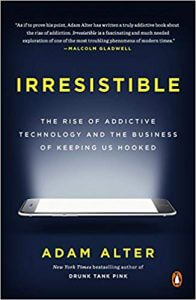
That’s why many of us chase after people like romantic interests. We know as terrible human beings they’re awful for us but because that person is unpredictable in their affection for us, we’ll continue to chase after him because it feels like this flood of emotion when they give you that time and attention. The Facebooks and the LinkedIns of the world have figured this out. Next time you open up your Facebook app, look at what happens in that notification icon there’s going to be a split second. It’s like a one second or half-second delay from when you log on and the time that shows you how many notifications you have. That split second is to create that longing for, “How many notifications do I have? How much do people love me?” Then when you click in, you get to see, is it a friend request? Is it a comment? Is it a like? That variable reward schedule is one of these things that keep you hooked. What would I recommend for people? One of the best books I’ve ever read on this topic is called Irresistible by Adam Alter. He’s an NYU professor and talks about the book called Irresistible. From that, I gleaned some things that I teach people about.
One of the other things I teach people about is creating no phone zones. I found that my time sucks, like where I went down the black hole, was when I was on my couch or in my bed with my screens. When I’m tired or when I’m in a super comfortable position, that’s where the scroll starts to happen. The drift starts to happen. “Would you like to watch another episode?” “Sure.” Even though you know you’re supposed to go to bed. Netflix is like, “Five more seconds,” and drift will kick in. If you can create, do this even for a week. You don’t need to do things permanently.
If you create these little temporary experiments to break yourself free from drift, to disrupt, find out what happens for a week. If you create a no phone zone in your bed, on your couch, and only look at it maybe on uncomfortable positions like when you’re standing, sitting at your dining room table. You’ll find that you’ll get so much time back. The last thing that I’ll share with you that is an absolute game changer is to turn off your notifications. Your notifications are the bane of your existence. Anderson Cooper did a 60 minutes study where he went into a biometric facility. They tethered him up to all these different sensors on his body and played this evil trick on him where they put his phone far enough away, beyond an arm’s distance away from him. He had to look at his phone flash notifications for an hour and not touch it. They asked him, “Anderson, as these notifications were flashing up, do you notice anything inside your chemistry?” He was like, “There’s no reaction that I’m having. I see notifications go off all day long.” Like most of us would condition ourselves to believe, but the machines, the computers told a very different story. Every time a notification went off his entire body flooded with cortisol, the stress hormone. Think about how many hundreds of notifications you get a day. Every time your phone rings, pings, buzzes, flashes, dropped down red data on your screen, it releases some cortisol in your body and that is channeling through your system on a perpetual basis.
It keeps you stuck in this perpetual state of survival mode. You go seeking for a dopamine hit to release that and it creates this nasty cycle of, “I’m stressed. I need to go find a hit to alleviate that,” and then you go right back in your technology to do it. Turn off any notification that’s not mission-critical for you. If it’s not a phone call, a voicemail, I’ve gotten mine down to just phone calls and flight app for any flight changes that I have. I do not even have notifications on text messages or emails anymore.
I had turned off all my badges on my phone so that none of my icons have any of those red badges that show a number anymore. I’ve got that advice from a post from Center for Humane Technology where they also showed me how to turn my phone into a grayscale mode and using the triple-click to switch between grayscale scale and full color. Instead of using triple-click to reverse the colors, you can turn on grayscale that way and keep it on because you’re less inclined to get sucked into your phone if it’s in grayscale mode. If you need full color, then it’s only a triple-click away. It’s so good to not have any indication on any of my icons, how many unread whatever is are waiting there for me.
Most high performers do not have a conscious strategy for their first hour of the day or the last hour of the day. Share on XIt’s important to understand too, that in any addiction or any habit there are three components. There’s a stimulus, there’s the response, and then there’s the reward. The stimulus is, let’s say we sit on the couch and our response or our habit is to reach for the remote. Then, we turn on the TV and we start watching Netflix. The reward is the dopamine hit because “I don’t know what I’m going to see in this next episode of whatever show I’m binge-watching.” You scramble, the signal in your brain to get out of this habit, to get out of this addiction. If you have a stimulus of sitting on the couch, then you change it so that your automatic response is to not go for the remote because you’ve hidden the remote in another room. My phone is not in this room with me while we’re doing this episode. I don’t even know what room it’s in, but it’s not in this room and it’s not on my mind. Cal Newport says, “There’s an attention residue checking your phone for a split second will occupy part of your brain on that thing for the next 20, 25 minutes. That is a lot of cognitive loads wasted on something that’s probably meaningless and doesn’t have a long-term benefit. Speaking of Cal Newport, he was on my show. He’s the author of the book Deep Work.
I wanted to circle back to the beginning of the episode where we were talking about 40 Years of Zen and at the end of the week, we were advised to establish some new habits, some mindfulness habits, meditation habits, and some new regimens for supplements. Chris Keane related these new neural pathways that we had created during the course of that week in the neurofeedback chamber in the pods as little baby kittens or little flowers in a garden. It’s easy to trample over those flowers while they’re still very little or to trample on those baby kittens. We needed to work on cultivating these little baby kittens. What have you done to cultivate your baby kittens?

I was religious about following their postgame protocol for probably three months. What they said was, “No caffeine for ten days or something like that. Afterward, no alcohol for at least two or three weeks or even a month. Then using this program called Neurominer. Neurominer is like a meditation that is specifically engineered to activate certain brainwave frequencies like Alpha, which is what we trained on quite a bit there and also Theta brainwave frequencies. For the first ten days, I did no caffeine. For the first month, no alcohol, which was fairly easy for me. I don’t drink that much anyway. For three months, I did Neurominer regularly for four to five times per week.
The thing about 40 Years of Zen that I found to be fairly similar to the 10-day Silent Meditation, the Vipassana Meditation that I did over years ago was I didn’t experience the benefits immediately. I experienced the benefits months later. They gave us the heads up on this stuff. They said, “It’s going to take about five or six months,” and we’re at the six-month mark where the circuitry has been laid. If you hadn’t trampled your kittens and the differences you should be experiencing, then. I will go back and get another brain map to see if there has been a tangible shift from my own learned experience from what I can detect consciously. As I know, there’s way more but below the iceberg. That’s only the tip of the iceberg that I can detect. I know that from my emotional accessibility, something has changed and shifted. I would say the regimen that I’ve put in place did protect my kittens.
What do you anticipate then the next big epiphany to come from? Is it some ten-day retreat or a conference? Where do you think is your next epiphany or your next up leveling is going to come from?
I am in this place now where I have cleared the decks. I have absolutely nothing on my horizon for personal development, for a workshop, for a Mastermind. All that stuff will be a part of my future. No question. I’m in the Brotherhood and that’s a little different because it’s more like a bond of men that come together to support each other. It’s not an active thing that we’re working on anything specific. I’ve cleared the decks because what I found is that personal development was becoming a crutch for me in my life that was preventing me from stepping up into this space of power where I need to be in right now. It became a very sophisticated form of procrastination for me.
It also became extremely noisy because you do something like 40 Years of Zen, you go to NLP then you go to Hypnosis, then you go to A-Fest, then you go to Summit Series and you go to Burning Man. There’s constantly something to integrate. There’s something to always put into motion. These are all extraordinary groups that have great methodologies that will make a profound life change, but it’s like I’m constantly being pulled in all these different directions. It’s about me tapping back into my own sense of my internal compass. The thing that I realized at the end of A-Fest in Sardinia, this was the four-day fest that I attended, I was sitting there in the audience and I was saying, “Why am I in the audience, in a chair? I’m the guy that belongs on the stage speaking and creating shifts in people.”
The other part of it is I knew that I have a message and I know that when I’m in my genius, people level up. There’s a certain amount of shifts that I can occur when I’m operating from that space, but I’m playing small. It’s easy for me to buy a ticket to the thing. It’s harder for me to reach out to the people who run that thing and be like, “You need to know about me. I need to be on your stage and speak,” then I have to face rejection. It’s easy for someone to come along and say, “Dominick, can you come on my stage and speak to my listeners?” I can easily rationalize that that’s how I want things to naturally flow to me, but the reality is that there’s an underlying sense of fear for me to go out and put myself in those places to face rejection and now I am confronting that. The way to do it is to clear the decks in the future so that there’s nothing clogging up my ability to distract myself from living into that higher purpose.
You don’t have any seminars, conferences, masterminds or anything scheduled for the rest of this year?
Nothing for the rest of this year.
I wish you the best with that. I personally would have a hard time doing that. I have a seminar addiction I guess. I’m a lifelong learner so it’s my way of up leveling, is to continue learning and applying what I’ve learned but I hear you. I hear that you need to remove distractions so that you could focus and up level.
This is your current temporary experience with taking Facebook off. I’m going offline for six months to implement all of the genius that I’ve learned and the next year, once I’ve taken command, then we’ll see what the next level up is.
How would folks find you if they wanted to work with you, get coaching from you, hear you speak at a workshop or a conference and learn from your genius?
My website is DominickQ.com. I have a book on Amazon called Design Your Future and it hit number one in business skills and organizational change. If you are in New York City, I encourage you to reach out to me because I do run workshops on a monthly basis at a place called The Assemblage. It is a coworking facility that is home to lots of Burning Man folks, Summoned Series folks, A-Fest folks about conscious heart-centered businesses, and entrepreneurial making a dent in this world. I run workshops there on Sexual Wisdom for the Modern Man and bringing powerful conversations that are typically taboo, that are undiscussed about men creating a safe space for that and for men to be able to have those conversations. Women are welcome as well as they’re highly interested in hearing men open up vulnerably in ways that most men don’t know how to approach. If you’re in New York City, I would love to connect with you and have you be a part of the audience for that.
Thank you so much, Dominick. Thank you to our audience.

